Memoirs & Diaries - Noyon - Twenty-Third of March, 1918
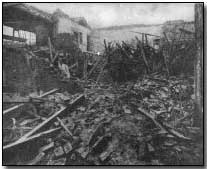 The most unhappy hours
which I can remember during my service in France and Belgium were spent in
and near Noyon, on the third day and night of the great German attack on the
V Army.
The most unhappy hours
which I can remember during my service in France and Belgium were spent in
and near Noyon, on the third day and night of the great German attack on the
V Army.
I shall not describe the first two days of our retreat. They are very blurred in my mind now, but I still dream of what happened to two of our field ambulances, to one of which I was attached, which had been withdrawn from active work after these first two days and nights.
Blistered heels seem a small thing to grouse about, but they are enough to cause acute misery, and I had unfortunately contracted, as the Americans say, "a good case of them."
Owing to the fact that at the beginning of our hasty retreat I had been wearing an old-fashioned pair of field-boots, ideal for riding, but the worst of walking footwear, my ankles above the heels were unbearably painful, and when our ambulance was directed to proceed to Noyon and await orders there, I got permission from my colonel to precede them in a motor ambulance which was going on with baggage.
Arriving at Noyon, I soon heard that the German Army was advancing rapidly from La Fere, and that Noyon shortly would be evacuated. I managed to find the French barracks, where I was to await the arrival of my unit, and found myself in a large open space, which was guarded by a long castellated gateway, just inside of which there was a small macadamised drill-ground sloping up to a pretty grassy field with small trees at the side.
For about 50 yards up from the gate and on the right were some small tarred-felt huts, and down near the gate a small lane turned sharply to the right, leading to some buildings.
It was a perfect afternoon, the sun was as warm as on a summer day, and, having had practically no sleep for more than two days and nights, I sat down to rest just inside the gate on a bank at the side of the lane. Though I began to read a book, I dropped sound asleep with my head between my knees, and the next thing I knew was our Padre waking me up with the words, "They're in".
If that unsympathetic soul had not disturbed my slumbers, I do not think that I should have ever awakened again, at least, not in this world! I must have been very sound asleep, for four motor ambulances had parked in the lane right in front of me without disturbing me at all.
"Oh! Right-o!" I yawned, and staggered to my feet. "I'll walk up and see them." Then I strolled up the barrack yard, casually looking up at a British aeroplane, which was flying very low and coming towards us.
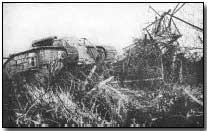 I stopped about 50 yards
from the gate to talk to a group of our men, noticed the colonel talking to
two or three other officers in the centre of the macadamised space, and was
admiring the pretty aeroplane - the first British 'plane we had seen for
days - glittering in the sun, the red-white-and-blue rings clearly visible,
when there came an indescribable explosion.
I stopped about 50 yards
from the gate to talk to a group of our men, noticed the colonel talking to
two or three other officers in the centre of the macadamised space, and was
admiring the pretty aeroplane - the first British 'plane we had seen for
days - glittering in the sun, the red-white-and-blue rings clearly visible,
when there came an indescribable explosion.
It was the most terrific, though not the loudest, perhaps, that I have ever heard, followed immediately by dull thuds and the sickening sight of men falling, groaning, spouting blood - whole limbs severed, horses frantically breaking loose.
But in the moment of frightful surprise I could only grasp the fact that two more explosions followed, luckily outside the gate, and believing that a Boche long-range gun had found us, I waited a few seconds flat on the ground for more - but no more came.
Beside me was one of the youngest men in the ambulances; the calf of one of his legs was torn right out, and the wound was spouting blood. I dragged him into the nearest hut and compressed his femoral artery, managing to stop the bleeding.
The hut seemed full of frightfully wounded men; I could do nothing but hang on to my poor little private's artery. What terrible faces they all had, pale as ashes! "Water," they groaned. "Oh, sir, can you do nothing for me?" It was frightful.
I saw two men die in front of my eyes, and no one came to help; my thumbs were nearly breaking, when to my horror, a badly wounded horse came galloping straight at the door of the hut, reared up, and appeared to want to come in!
It would have trampled us badly. I was half-turned from the door, and was just able to keep it shut by holding my foot against it, my right leg braced against the weight of the poor horse, which was frantically beating the door with its fore-feet!
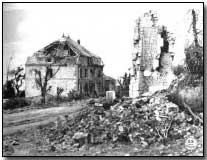 All the time I hung on to
that femoral artery! Just when I felt that I could keep my leg up no
longer. the horse fell dead, and I was released from my uncomfortable
position by the arrival of a sergeant, who first had to open the backs of
two wagons to get enough dressings, as we were all "packed up," and then was
able to give me some assistance with first aid to the wounded in our
immediate vicinity.
All the time I hung on to
that femoral artery! Just when I felt that I could keep my leg up no
longer. the horse fell dead, and I was released from my uncomfortable
position by the arrival of a sergeant, who first had to open the backs of
two wagons to get enough dressings, as we were all "packed up," and then was
able to give me some assistance with first aid to the wounded in our
immediate vicinity.
All this must have taken place in a matter of a few minutes, for when I was able to get out of this ghastly hut (by the way, why did we all crowd into it?) things outside were still appallingly confused. I gathered from quick questioning that the aeroplane must have been one captured by the Germans, and that a bomb had been dropped, the hole which it had made being just inside the barrack gate.
The terrible nature of the damage to everything in the neighbourhood of the explosion was due to the impact of flying fragments of road-metal. The vagaries of explosives were illustrated in this case by the fact that our colonel was standing within a few yards of the spot where the bomb went off, and though a French interpreter just beside him was stone dead, he was not touched or affected in any way by the concussion.
Piteous sight after sight met my eyes as I got more into the centre of the holocaust; more than fifty non-combatants were dead, dying, or wounded. One face haunts me to this day: a fine young American medical officer lay in the hut at the foot of the row, his expression the most horrible and soul-searing I ever saw.
He was half-sitting up, waiting for his turn for attention, both legs bending, not at the natural place at the knees, but half-way up the thighs, and he was praying for morphia to ease his agony.
All the wounded seemed to suffer more than any I had seen before, owing probably to the awful bruising and smashing power of these lumps of road-metal. Just where I had been sleeping a few minutes before, the greatest damage was apparent.
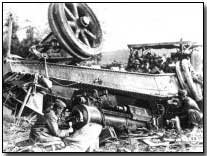 The two foremost ambulances
were completely wrecked, two men had been hideously mangled on the front
seat of one of them, and along the bank one could see the ground furrowed by
the flying stones, many pieces of which were almost as big as one's clenched
fist.
The two foremost ambulances
were completely wrecked, two men had been hideously mangled on the front
seat of one of them, and along the bank one could see the ground furrowed by
the flying stones, many pieces of which were almost as big as one's clenched
fist.
I found the strain of helplessly watching so much suffering while waiting for dressings and drugs to be unpacked so insupportable that I asked the colonel if I could go down to a casualty clearing station for liquid morphia and perhaps some help.
My memory here is somewhat blurred, but somehow I got hold of a car and managed to find the clearing station or stationary hospital - I cannot remember which it was - with great difficulty, as the place seemed deserted.
I found a nursing sister - her face of sorrow is another painful memory. I blurted out to her, "We've had an awful catastrophe with a bomb - thirty or forty men crying for morphia. Can you give me some?" Her sad face hardly changed its expression. Then she made me understand why. "Come this way," she said, and led me to the largest marquee. I stepped inside and recoiled, aghast... Row upon row upon row of silent forms on stretchers - nothing else.
"There are several hundred stretcher cases here who still have their first field dressings on." The sister sighed - "And we are leaving very soon!" She had reached the limit of unavailing regret, and I felt quite ashamed of mentioning such a trifling matter as thirty or forty wounded!
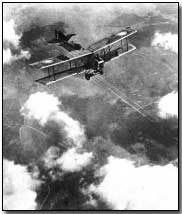 When I returned to the
blood-stained barrack yard, order of a kind had been restored, but another
row of forms, alas, still for ever, lay side by side in the evening
sunshine.
When I returned to the
blood-stained barrack yard, order of a kind had been restored, but another
row of forms, alas, still for ever, lay side by side in the evening
sunshine.
The less seriously wounded were being got away somewhere in our available transport, baggage was being cleared from wagons to make room for them, and the obviously dying were in the biggest hut. We survivors could barely raise our voices to speak. I was detailed to take a certain number of men to dig a grave near the abandoned hospital.
A beautiful chestnut mare stood patiently tethered to a tree, bleeding slowly to death from a small wound in the belly, through which a flying fragment had passed; the blood dripped steadily on, and one could not think of the poor animal's final and tedious death; as I had at one time been a combatant officer I was beseeched to put an end to its misery with a rifle which was produced from somewhere. All that I can say about this is that I did it... but it is another haunting memory.
Then followed the burial of twenty-nine officers and men. The grave took several hours to dig. The service and filling in of the grave took a couple of hours more, and then, in darkness, began the crowning agony of that awful day.
Twelve miles to march with exhausted men to a destination which never seemed to come nearer; every halt a torture - thinking of starting again; whipping in stragglers whom one pitied from the bottom of one's heart, while cursing them for their bad discipline; trying to be cheerful, when we were all in the darkest depths.
What a night! It ended by our arrival at a place called Lassigny, which had once been a village, and where the main body of our ambulance had crept into a muddy field and erected tents. I at last could lie on my face on the ground and moan to myself, "My heels!... Oh! my heels!" until someone - perhaps my servant, perhaps my friend Captain Barton - came to help me off with my boots...
Dr. F. O. Taylor served in France in the R.F.A. and the R.A.M.C.
First published in Everyman at War (1930), edited by C. B. Purdom.
Photographs courtesy of Photos of the Great War website.
The USA suffered 57,476 fatal army casualties during the war.
- Did you know?
